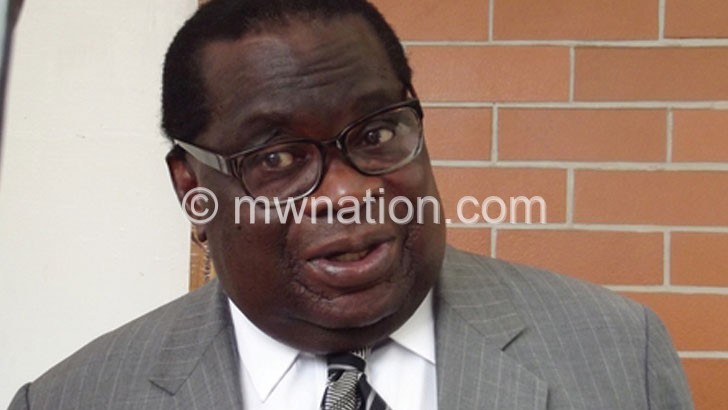IMF extends Malawi loan programme again
The economic shocks resulting from reduced crop harvest this year continue to have repercussions on the country’s macroeconomic outlook as the International Monetary Fund (IMF) has again extended the ninth Extended Credit Facility (ECF) to June, 2017 to allow the government to get its house in order.
Speaking at the press conference to mark the end of the two-week mission review, IMF mission chief to Malawi Oral Williams said since government’s efforts to address food shortages were still continuing, but the IMF would allow Capital Hill to demonstrate achievements on inflation, domestic debt and interest rate implementation in the face of the humanitarian risk being experienced.

“Given the humanitarian crisis the country is experiencing we need to have further discussions. We do need to have maize, and if we don’t have it locally, we have to get it overseas and this requires financing. In this respect, our discussions will continue in the context of the annual meetings when member countries meet in Washington in October,” he said.
Williams said the meetings, scheduled for October 7 to 9 will encourage faster additional financing, on top of the $49 million dollars which the fund provided specifically for maize purchases.
This means, Minister of Finance Goodall Gondwe will head to Washington next week with a begging bowl to enable him finance the purchase of maize.
Gondwe confirmed that the IMF has not been able to complete the review because the government has not resolved the financial aspects of the maize crisis.
“Right now we are looking at the following scenarios: What should the government contribution really be and we are going to end up with further borrowing or none at all? In the circumstances, these questions will be answered better when the IMF completes the exercise,” Gondwe said.
But the fund has warned the government to stay within the projected expenditure to avoid incurring any more arrears which would result in increased domestic borrowing.
It has also asked the government to carefully target reduced maize price at the most vulnerable of the population in a cost effective manner to avoid straining the budget and worsening public debt has now risen from 40 percent of the Gross Domestic Product (GDP) in 2012 to 58 percent of GDP in 2016.
In 2016, the Malawi Vulnerability Assessment Committee has found that 8.2 million will face food shortages as a result of El-Nino induced floods in the north and drought in the south and centre and the government has so far allocated K35 billion in the 2016/17 budget towards maize purchases.
The IMF suspended the program in 2015 following Cashgate scandal in which senior government officials were found to have siphoned millions of dollars from State coffers.





